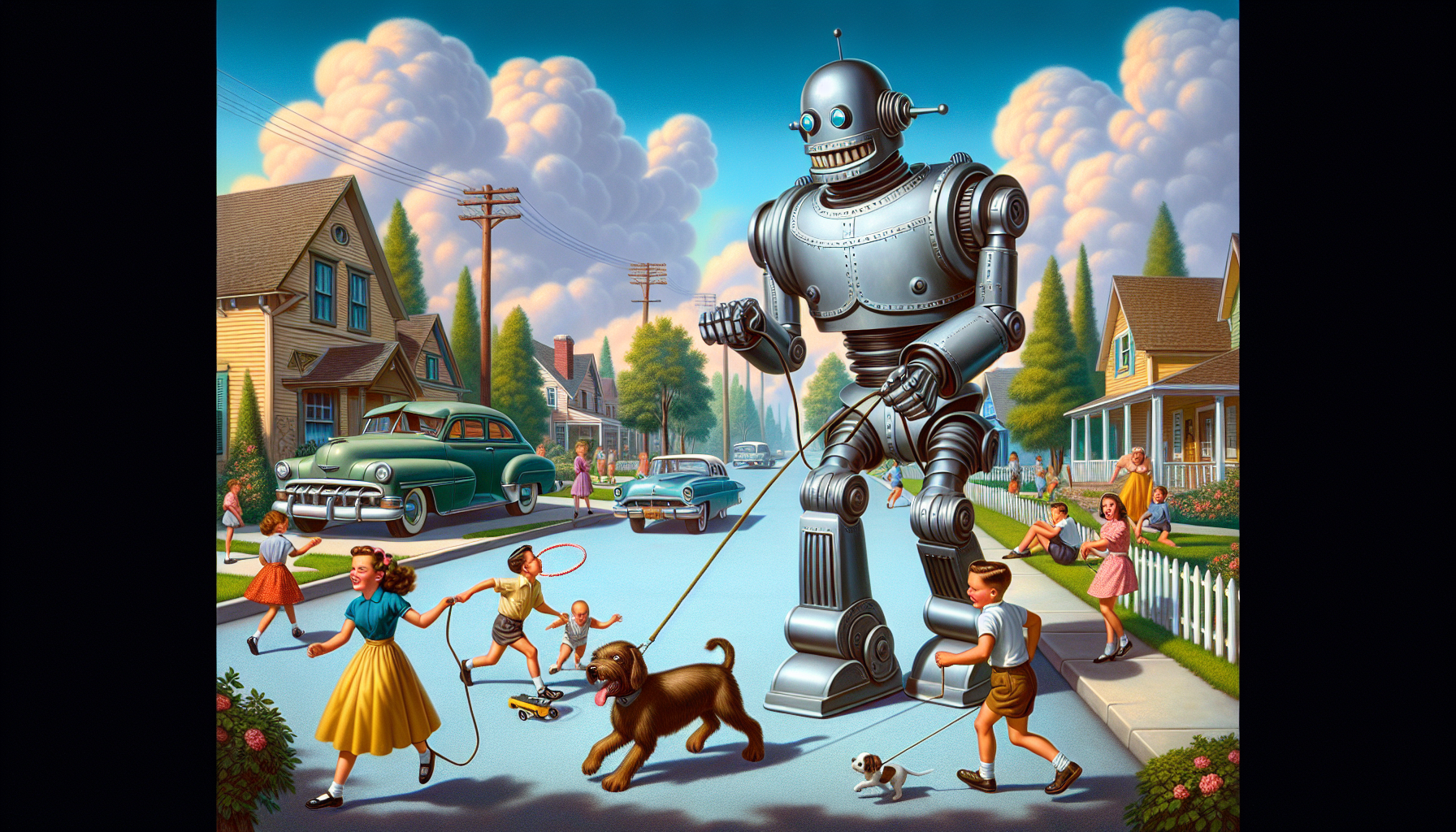Google and OpenAI Lead AI Evolution: From Experiential AI to ChatGPT's Expanding Influence
April 22, 2025

Google just fired the first shot of the next battle in the AI war
Google AI researcher David Silver and Canadian computer scientist Rich Sutton propose a new phase in AI development called "the Era of Experience" in their recent paper, which has sparked significant industry discussion. This era aims to address the scarcity of high-quality training data, a limitation of the current "Human Data Era" characterized by models like OpenAI's ChatGPT, by enabling AI models to create their own data through real-world interactions. This paradigm shift, building on the "Simulation Era" of game-based reinforcement learning models like AlphaGo, is suggested to propel AI towards artificial general intelligence by surpassing human-generated data constraints. Notably, the paper mentions potential applications, such as AI health and educational assistants, and critiques the limitations imposed by reliance on human data. The authors suggest that encouraging AI models to independently generate experiential data could lead to breakthroughs beyond existing human knowledge. (Source)
More than 100 public software companies are getting 'squeezed' by AI, a new study finds
A foundational transformation in enterprise software driven by generative AI is challenging the traditional software-as-a-service (SaaS) model, according to a study by AlixPartners. This shift impacts over 100 midmarket software companies caught between agile AI-native startups and tech giants like Microsoft and Salesforce, which are investing heavily in AI, threatening the survival of midsize firms. As AI agents evolve from being mere assistants to becoming core applications capable of handling intricate tasks and bypassing traditional software layers, the relevance of traditional SaaS models is questioned. Companies like Klarna are already dropping established SaaS providers in favor of smaller, AI-focused vendors. The study highlights the urgency for these firms to integrate AI deeply, pivot quickly to new pricing models, and reconsider infrastructure strategies amid rising interest rates and tighter capital markets. The report suggests a new playbook that includes developing AI agents as core products, adopting outcome-based pricing, focusing on AI-driven products, and considering mergers or acquisitions, as the software landscape shifts from applications to AI agents. (Source)
How AI Can Leverage Digital Clones And Aid Terminally Ill Patients
Raghu Para, a seasoned tech executive with expertise in AI and machine learning, explores the burgeoning field of AI-powered digital clones designed for digital legacy preservation. These AI-driven avatars use advanced technologies like GPT-4, Whisper, and transformer-based architectures to capture and mimic individuals' personalities and speech patterns, offering dynamic and evolving representations of people for their loved ones to interact with after they pass. While this technology presents groundbreaking opportunities for maintaining human connections and preserving memories, particularly for terminally ill patients, it also raises significant ethical questions regarding privacy, authenticity, and the control of digital legacies. The article underscores the transformative potential of AI in memorializing personal stories while noting the necessity for ethical guidelines to prevent misuse. (Source)
The Critical Role Of AI Governance In Indirect Tax Technology Adoption
Sal Visca, Chief Technology Officer of Vertex, discusses the transformative impact of generative artificial intelligence (GenAI) on the tax industry, highlighting the need for ethical and responsible deployment. GenAI offers taxation departments the opportunity to automate tasks and streamline processes, but it also raises concerns about data privacy and compliance with regulations. Visca stresses the importance of integrating human oversight, minimizing bias, and ensuring transparency and accountability in AI-driven tax practices. Tax organizations must implement strong controls and establish clear guidelines for GenAI usage to maintain trust and efficiently communicate AI's role in their processes to clients. Additionally, understanding AI's capabilities and limitations and continuously evaluating and improving AI tools are essential to mitigating risks and enhancing reliability. (Source)
ChatGPT: Everything you need to know about the AI-powered chatbot
ChatGPT, developed by OpenAI, has rapidly evolved since its 2022 launch, amassing 300 million weekly active users and integrating into numerous tech applications. OpenAI's innovations include a partnership with Apple, the advanced GPT-4o model, and a text-to-video tool called Sora. Despite facing legal challenges and executive departures, OpenAI remains competitive, particularly against Chinese companies like DeepSeek, by forging stronger ties with the U.S. government and pursuing substantial fundraising efforts. Recent updates include advanced AI reasoning models, GPT-4.1 with enhanced coding capabilities, and potential entry into social media. Its new offerings, such as the Flex processing feature and image watermarking, aim to balance innovation with safety. OpenAI also anticipates tripling its revenue by 2025, though it continues grappling with public perception and regulatory scrutiny, especially in Europe regarding AI-generated content accuracy. (Source)
